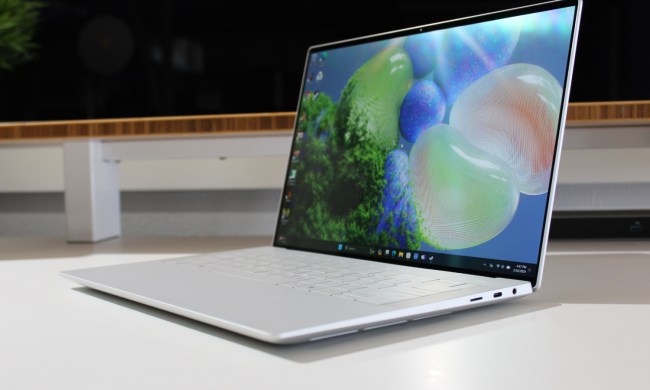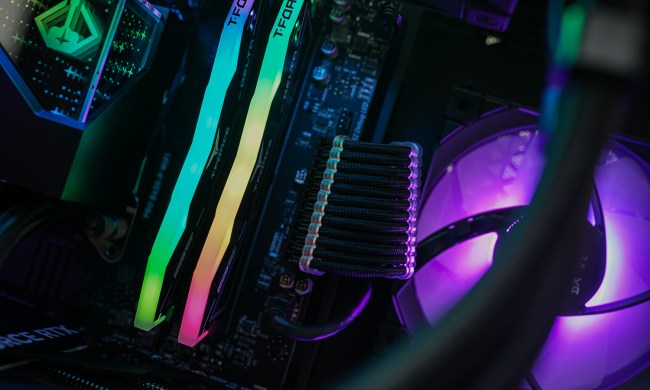Two of the leading AI chatbots available today come from Google, with its Gemini system, and OpenAI, the company that kicked off the AI revolution with ChatGPT.
But you might be wondering which is the better free chatbot. I’ve spent a significant time with both to see how they compare, break down the costs and benefits of each service, explain what features you’ll have to pay for and which you get for free, and show you which AI is best for what you need.
Pricing and tiers
Both ChatGPT and Gemini are available to the public for free at their respective websites and through their mobile apps. However, free tier users will only receive limited access to the most current and capable models.
In OpenAI’s case, free access grants you access to ChatGPT-4o but only a limited number of times in a three-hour window before the system kicks you down to the oldest version, ChatGPT-3.5. What’s more, maxing out your rate limit while performing data analysis, file and image uploads, or browsing with ChatGPT at the free tier will lock you out of all three tools until the cooldown timer resets.

Still, the free tier allows users to browse the web, analyze uploaded data, images, and files, as well as discover and use GPT applets. However, Dall-E image generation is not available at all on the free tier, nor are users at that level allowed to create their own GPTs. For those services, you’re going to need to upgrade your subscription to Plus ($20/month for individuals), Teams ($25/month per employee), or Enterprise (if you have to ask, you can’t afford it).
As for Google, you’ll be running Gemini 1.0 Pro on both desktop and mobile, and get many of the same features found in the ChatGPT’s free tier — text generation, text analysis, and code generation — as well as a basic image generator.
You will run into similar usage caps with Google’s offering, though “the number of prompts you can use before hitting the limit varies and depends on factors like how long and complex your prompts are, the size and number of files you upload, and the length of your conversations with Gemini,” according to the Gemini Apps FAQ.

To get around those caps and gain access to Google’s more capable Gemini Advanced, which runs both the newer 1.5 Pro and the Ultra 1.0 models, as well as access to a 1-million-token context window and enable it to integrate with Google Workspace, you’ll need to pony up $20 a month for a Google One AI Premium subscription.
There are also subscriptions for businesses, a $20/month (1-year commitment) version called Gemini Business that does everything the AI Premium sub does, just for everybody in your firm, as well as a $30/month Enterprise version that also includes “advanced meetings with translated captions in 15+ languages.”
Advantages of using Gemini
I mean, being able to generate AI art without having to shell out $20 a month is pretty cool. And if you do spend the $20, Gemini’s integration with Workspace can provide a number of benefits. It can help you draft emails in Gmail, fact-checks itself directly from Google Search results, helps you write more eloquently in Docs by either proofreading what you’ve already got or generating text based off your prompt, generate new slides and summarize presentations in Slides, analyzes user spreadsheet data in Sheets, and autonomously takes notes off your video conference in Meet.
You can also integrate Gemini with other Google apps including Flights, Maps, YouTube, and YouTube Music through the extensions tab in the Settings menu.

Gemini also offers a feature not found in ChatGPT, called drafts. If you ask the system a particularly tricky question, like, “A 12-foot-tall ladder is leaning against a wall at a 75-degree angle. If the bottom of the ladder begins sliding out from the base of the wall at 15 centimeters per second, how fast will the top of the ladder be traveling when it hits the ground,” Gemini will provide you with its best answer as well as offer to show you the other, slightly different responses it generated but did not use. That way if you don’t like the answer you received, you can get alternative explanations without having to reformat or reiterate your prompt.
Advantages of using ChatGPT
Sure, you won’t be able to spontaneously make images of pandas in top hats eating ice cream in a Parisian cafe for free, but you also don’t have to sign in. Unlike Gemini, ChatGPT does not require users to sign in to an account to access its free tier.

Personally, I like that when you ask ChatGPT about current events, it will automatically include source links in its response so you can quickly fact-check its response and dig into the subject matter further if you so choose (Gemini requires you to click the Google button at the bottom of the response for it to fact-check). On more than one occasion, I’ve had Gemini (even the paid version) tell me, “I’m still learning how to answer this question. In the meantime, try Google Search,” (I asked it what the current day’s news out of South Africa was, for example), which is the equivalent to Siri requiring me to type my question because, “sorry, I didn’t catch that.”
Both AIs allow users to manage, rename, archive and delete previously-held conversations. However, while ChatGPT creates shareable links to those talks, Gemini (assuming you’ve got the Workplace integration activated) can export conversations to either Docs or paste them into a Gmail draft.
Speed and accuracy comparison
In my experience, I’ve found that Gemini tends to return answers a touch faster than ChatGPT (though the difference in practice really is negligible), but ChatGPT tends to return fuller, more fleshed out responses. Take code generation, for example. When asked to create a java code snippet to find the area of a circle, Gemini returned the following:
double radius = 5; // Replace with your desired radius value
final double PI = 3.14159; // More precise value for pi
double area = PI * radius * radius;
System.out.println(“Area of circle: ” + area);
Meanwhile, ChatGPT generated the following:
public class CircleAreaCalculator {
public static void main(String[] args) {
double radius = 5.0; // Example radius
double area = calculateArea(radius);
System.out.println(“The area of the circle with radius ” + radius + ” is ” + area);
}
public static double calculateArea(double radius) {
return Math.PI * Math.pow(radius, 2);
}
}
Both systems had little trouble then converting that code from Java to C++ and made sure to include the necessary C++-specific syntax.
For image generation, obviously Gemini has the upper hand. Google’s AI returned four generated options for pandas in top hats eating ice cream at a Parisian cafe, while OpenAI’s offering told me the following:
While I can’t generate images directly, you can use a text-to-image AI tool like DALL-E or MidJourney to create this image. Here’s a prompt you could use with one of those tools:
“Generate an image of pandas in top hats eating ice cream at a Parisian cafe.”
If you need more specific details or adjustments to the prompt, feel free to let me know!
In terms of language translation, both systems immediately gave me the correct kanji for the Japanese proverb ichigo ichie (一期一会). However while Gemini just spit out the four characters, ChatGPT was gracious enough to add a bit of added context to its response:

I think Gemini actually gives better life advice answers. When prompted with “I’m starting a new job next week, how can I make an immediate good impression with my new coworkers?” ChatGPT returned 10 bullet-point suggestions like “be punctual,” “be proactive,” and “dress appropriately,” Gemini came back with a full-on multistage scheme for impressing my hypothetical colleagues, including actions I can take prior to starting the job, first-day goals, and even ongoing advice for building solid relationships with other people in the office.
Conversely, on complicated math problems, I believe ChatGPT to be superior. For that ladder sliding down a wall question mentioned above (taken from the Calc 1B course I failed twice in college), Gemini gave me a convoluted response that first ran into a dividing-by-zero issue, then only told me what the speed of the top of the ladder would be when it started falling (-1.2 feet/s), not when it actually hit the ground.
ChatGPT, on the other hand, solved the problem (−0.1318 ft/s) in five easy-to-follow steps using the same formulas that I recognize (but still don’t really understand) from my college coursework.
Which is better?
Eh, that’s like asking if Ford or Chevy is better, or whether Mac or Windows is the superior OS. Since they’re both free, you’re safe to try them both out and see which you prefer on a particular prompt. If free image generation is what you most want or you’re already tied deeply to the Google product ecosystem, go with Gemini and take advantage of the Workspace integration.
If you don’t want to have to remember your login information or are already running Windows on all of your devices, maybe ChatGPT will suit you better. There is no wrong answer here because it depends entirely on what you specifically want to get out of the experience. I’d say if you aren’t happy with what one of the two chatbots is giving you, it’s worth trying the prompt on the other chatbot because the two regularly give quite different answers.



